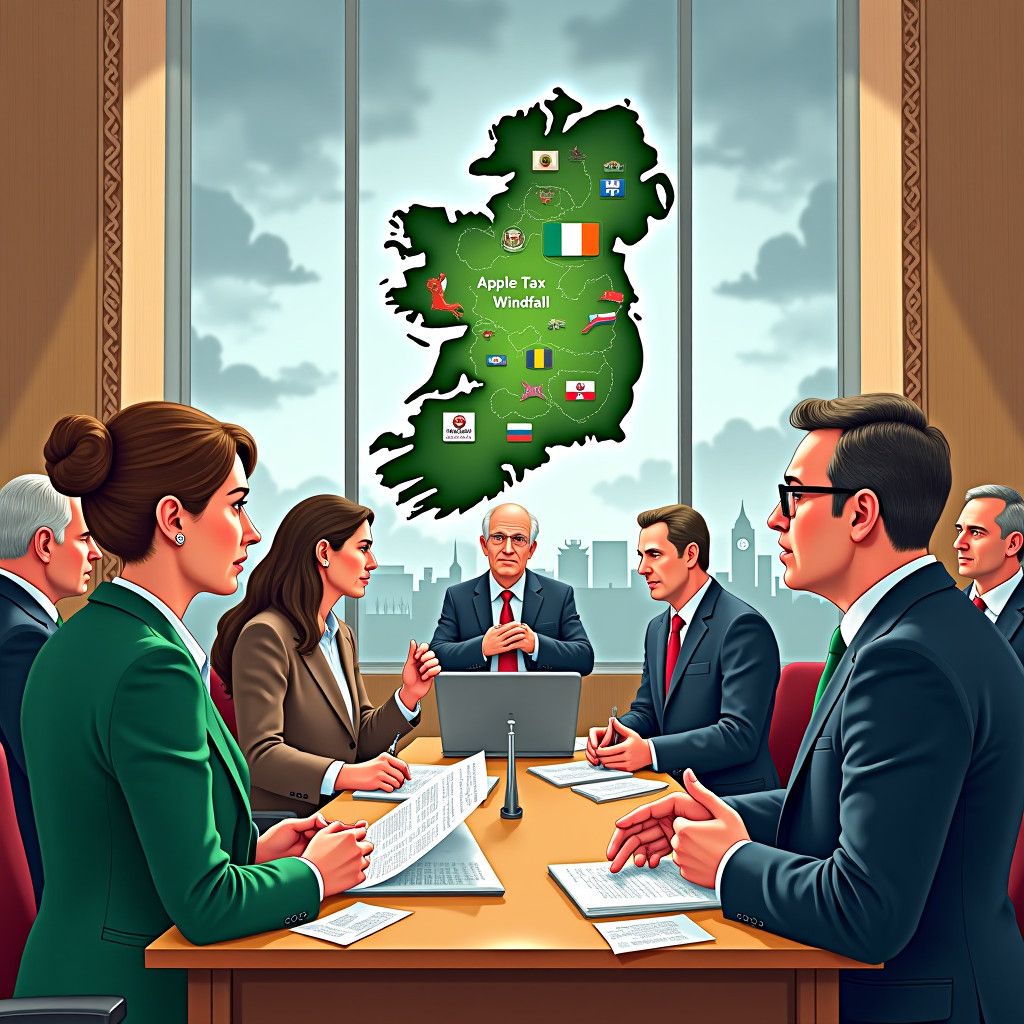Ireland is at a crossroads as its political parties brainstorm how to allocate the substantial €14 billion tax windfall accrued from Apple. This windfall is the result of a landmark European Union ruling requiring the tech giant to pay back taxes, including interest, due to the receipt of unfair tax advantages. With a general election looming, this once-in-a-lifetime opportunity has ignited considerable debate among political factions regarding its best use, particularly in the much-criticized housing sector.
As housing dominates the campaign agenda, drafters of party manifestos have made significant pledges aimed at addressing the ongoing housing crisis. The ruling coalition, consisting of Fianna Fáil and Fine Gael, emphasizes a commitment to social housing, while opposition parties are pitching grander schemes. For instance, Fianna Fáil is proposing an investment of €4 billion specifically targeted towards social housing projects. In contrast, Sinn Féin has advanced suggestions to allocate €7.6 billion for public housing, along with €1 billion earmarked for a housing redress scheme to assist those in need.
This divergence in approach to the housing crisis highlights differing perspectives on the role of government in investment and social welfare. Sinn Féin’s allocation strategy reflects its commitment to a more ambitious housing agenda, prioritizing a user-centered approach in supporting lower-income families against market fluctuations. Such frameworks are not just timely—they also possess the potential to stimulate broader economic growth by addressing housing shortages, which remain a pressing concern for many Irish families.
The Green Party and Labour are no strangers to the housing conversation either, advocating for infrastructure development as a method of ensuring sustainability. Their proposals echo a desire for a greener future by coupling housing with renewable energy initiatives, which could appeal to environmentally-conscious citizens.
Beyond housing, critical investments are proposed in transport, renewable energy, and regional regeneration. Fine Gael and Fianna Fáil are particularly focused on enhancing water systems and electricity grids—areas that are fundamental to contemporary living standards. Investment in such infrastructure not only targets the immediate needs of citizens but also fosters long-term sustainability by integrating modernized solutions into public systems.
For example, The Green Party’s commitment to improving public transport aligns with global trends prioritizing environmental sustainability. By enhancing transport options, Ireland stands to gain in terms of reduced carbon emissions, which is vital as the world grapples with climate change. Thus, while addressing immediate infrastructural needs, these measures could also serve as a pillar for Ireland’s broader green agenda.
Moreover, both Sinn Féin and Fianna Fáil are proposing community-focused funds aimed at underdeveloped areas—an initiative that mirrors policies characterized by ‘levelling up,’ commonly seen in other countries. Such funds aim to erase economic disparities across different regions in Ireland, providing financial resources where they are most needed.
However, the challenge lies in translating these ambitious proposals into actionable policies. As parties gear up for campaigning, skepticism remains concerning the realization of these plans. Each party must convincingly communicate not only the feasibility of their proposals but also how they intend to maintain accountability during implementation.
The outcome of how the €14 billion will be spent may hinge upon voter sentiment—a sentiment that will likely evolve through discussions around these proposals. Citizens will scrutinize whether the political will to address housing shortfalls translates into tangible outcomes or if, conversely, it devolves into a series of unfulfilled promises.
As Ireland stands on the brink of this critical election, the decisions made regarding the Apple tax windfall will have ripple effects far beyond immediate financial allocations. They provide an opportunity for the government to not only address pressing social issues but also set a new standard for future fiscal responsibility, community engagement, and sustainable development.
In conclusion, the stakes are high. The path chosen by Ireland’s political leaders could not only reshape the housing landscape but also serve as a critical test of governance and commitment to future planning. As parties prepare for the upcoming election, it is essential for them to maintain transparency and authenticity in delivering their visions for this unprecedented windfall.
Ireland must act decisively to ensure that this financial boon translates into positive, impactful change for its citizens, particularly the vulnerable. The focus on immediate issues such as housing, renewable energy, and infrastructure will play a central role in determining who will earn the trust of voters in the pivotal election ahead.












